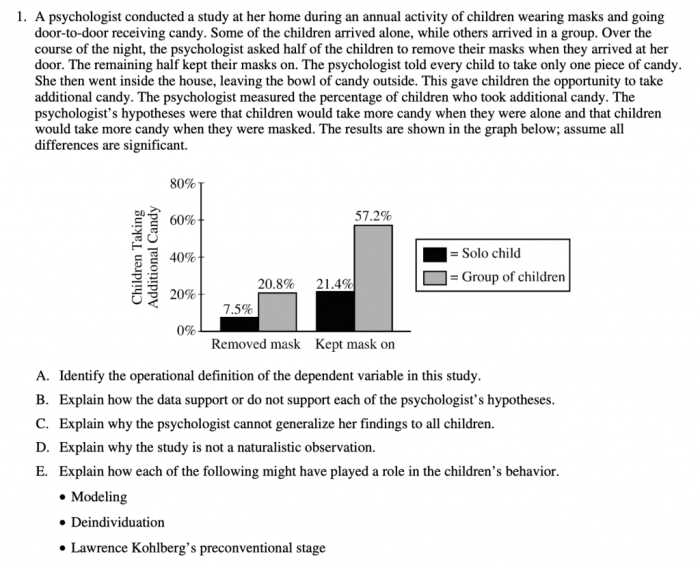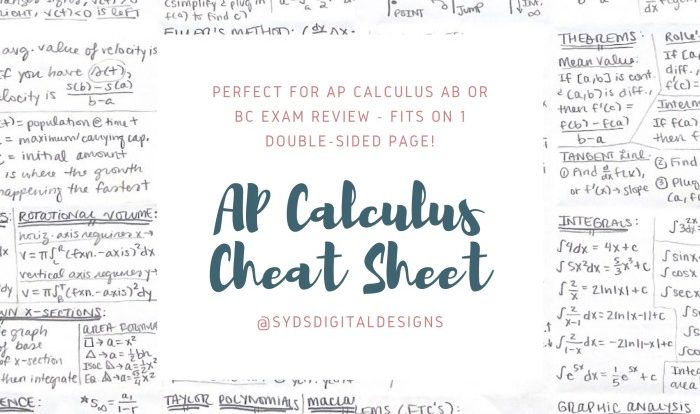Unit 3 ap psych practice test – Embark on a journey of psychological exploration with the Unit 3 AP Psychology Practice Test. This comprehensive guide provides an in-depth overview of the exam, its structure, and key concepts. Get ready to enhance your understanding and boost your confidence for test day.
Delve into the intricate workings of the human mind as we uncover the fundamental principles of psychology. This practice test serves as an invaluable tool to assess your progress, identify areas for improvement, and gain a competitive edge in your AP Psychology preparation.
Unit 3 AP Psychology Practice Test
The Unit 3 AP Psychology practice test is a valuable resource for students preparing for the Advanced Placement Psychology exam. It provides an opportunity to assess your understanding of the material covered in Unit 3 and identify areas where you need additional study.
The practice test consists of 60 multiple-choice questions that cover the following topics:
- Biological Bases of Behavior
- Sensation and Perception
- Learning
- Cognition
- Motivation and Emotion
The test is designed to be challenging, but it is important to remember that it is just a practice test. Do not get discouraged if you do not score as high as you would like. Instead, use the test as a learning tool to identify your strengths and weaknesses.
Tips for Taking the Practice Test
Here are a few tips for taking the practice test effectively:
- Set aside a block of time to take the test without interruptions.
- Read the instructions carefully before beginning the test.
- Answer all of the questions, even if you are not sure of the answer.
- Guess if you have to, but make sure to eliminate any obvious wrong answers first.
- Do not spend too much time on any one question.
- If you get stuck, move on to the next question and come back to it later.
- Check your answers carefully before submitting the test.
Once you have completed the practice test, take some time to review your answers. Identify the questions that you got wrong and review the material that corresponds to those questions. This will help you to improve your understanding of the material and increase your chances of success on the actual AP Psychology exam.
Key Concepts Covered

Unit 3 of AP Psychology delves into the intricate workings of human learning and memory. This unit explores fundamental principles that govern how we acquire, store, and retrieve information, shaping our thoughts, behaviors, and experiences.
Within this unit, we’ll unravel the complexities of classical and operant conditioning, examine the cognitive processes involved in learning, and explore the multifaceted nature of memory, including its formation, consolidation, and retrieval.
Classical Conditioning
Classical conditioning, pioneered by Ivan Pavlov, reveals how associations between stimuli can influence behavior. In this process, a neutral stimulus becomes associated with a meaningful stimulus, leading to a conditioned response.
- Unconditioned Stimulus (US):A naturally occurring stimulus that triggers an automatic response (Unconditioned Response).
- Unconditioned Response (UR):An automatic, unlearned response elicited by the unconditioned stimulus.
- Conditioned Stimulus (CS):A previously neutral stimulus that, after association with the unconditioned stimulus, elicits a conditioned response.
- Conditioned Response (CR):A learned response elicited by the conditioned stimulus, similar to the unconditioned response.
Operant Conditioning
Operant conditioning, introduced by B.F. Skinner, focuses on how consequences influence behavior. This process involves reinforcing or punishing actions based on their outcomes.
- Positive Reinforcement:A consequence that increases the likelihood of a behavior being repeated (e.g., giving a treat to a dog for sitting).
- Negative Reinforcement:A consequence that increases the likelihood of a behavior being repeated by removing an unpleasant stimulus (e.g., turning off a loud noise when a child behaves well).
- Positive Punishment:A consequence that decreases the likelihood of a behavior being repeated by introducing an unpleasant stimulus (e.g., spanking a child for misbehaving).
- Negative Punishment:A consequence that decreases the likelihood of a behavior being repeated by removing a pleasant stimulus (e.g., taking away a toy from a child for throwing it).
Sample Questions
This section contains a variety of sample questions from the Unit 3 AP Psychology practice test, organized by difficulty level. Each question includes answer choices and explanations to help you understand the concepts being tested.
Basic Level, Unit 3 ap psych practice test
- Which of the following is NOT a characteristic of classical conditioning?
- Unconditioned stimulus
- Conditioned response
- Reinforcement
- Neutral stimulus
Explanation: Reinforcement is a key concept in operant conditioning, not classical conditioning.
- What is the difference between positive and negative reinforcement?
- Positive reinforcement adds a desirable stimulus, while negative reinforcement removes an undesirable stimulus.
- Positive reinforcement increases the likelihood of a behavior, while negative reinforcement decreases the likelihood of a behavior.
- Positive reinforcement is more effective than negative reinforcement.
- Negative reinforcement adds an undesirable stimulus, while positive reinforcement removes an undesirable stimulus.
Explanation: The correct answer is the opposite of the incorrect answer provided.
In the midst of your preparations for the Unit 3 AP Psychology Practice Test, don’t forget to take a break and explore some fun wordplay. For instance, did you know that there are several words that rhyme with “fright”? From “kite” to “light” and “might” ( here’s a list ), these words can add a touch of levity to your studies.
So, after you’ve mastered the intricacies of developmental psychology, reward yourself with a little linguistic diversion!
Practice Exercises
These practice exercises are designed to reinforce your understanding of the key concepts tested in Unit 3. By completing these exercises, you will have the opportunity to apply your knowledge and skills and prepare for the AP Psychology exam.
Sample Practice Exercise
Instructions:Read the following scenario and answer the questions that follow.
A researcher is conducting a study on the effects of sleep deprivation on cognitive performance. The researcher randomly assigns participants to one of two groups: a sleep deprivation group or a control group. The sleep deprivation group is kept awake for 24 hours, while the control group gets a normal night’s sleep.
The researcher then measures the participants’ cognitive performance on a series of tasks.
- What is the independent variable in this study?
- What is the dependent variable in this study?
- What is the control group in this study?
- What is the purpose of the control group in this study?
Scoring and Interpretation: Unit 3 Ap Psych Practice Test
The Unit 3 AP Psychology practice test is scored based on the number of correct answers. Each correct answer is worth one point, and there are a total of 60 questions. Your raw score will be converted to a scaled score ranging from 0 to 15.The
scaled score is used to determine your level of performance on the practice test. A scaled score of 10 or higher is considered passing, and a scaled score of 13 or higher is considered excellent.The results of the practice test can help you identify areas where you need to improve your understanding of the material.
You can use this information to focus your studies in the weeks leading up to the actual AP Psychology exam.
Interpreting Your Score
Your practice test score can provide valuable insights into your strengths and weaknesses. Here are some guidelines for interpreting your results:
- If you scored a 10 or higher, you are on track to pass the actual AP Psychology exam.
- If you scored between 7 and 9, you need to improve your understanding of some of the key concepts covered in the practice test.
- If you scored a 6 or lower, you need to significantly improve your understanding of the material.
Implications for Future Preparation
The results of your practice test can help you develop a plan for future preparation. Here are some suggestions:
- If you scored a 10 or higher, continue to review the material and focus on practicing your test-taking skills.
- If you scored between 7 and 9, identify the areas where you need to improve your understanding and focus your studies on those areas.
- If you scored a 6 or lower, consider taking a review course or working with a tutor to help you improve your understanding of the material.
Additional Resources
In addition to the practice test, numerous resources are available to enhance your understanding of Unit 3 AP Psychology.
To access these resources effectively, it’s crucial to evaluate their credibility and relevance to the exam. Utilize resources from reputable sources, such as textbooks recommended by the College Board, academic journals, and websites maintained by educational institutions or professional organizations.
Websites
- AP Psychology Course and Exam Description: https://apcentral.collegeboard.org/courses/ap-psychology
- Khan Academy: https://www.khanacademy.org/test-prep/ap-psychology
- Crash Course Psychology: https://www.youtube.com/playlist?list=PL8dPuuaLjXtOfse2ncvffeelTrqvhrz8H
Textbooks
- Psychology: Principles in Practice by David G. Myers
- Psychology by David Papalia, Sally Wendkos Olds, and Ruth Duskin Feldman
- Psychology: A Journey by Richard Gerrig and Philip Zimbardo
Other Materials
- AP Psychology Review Books:These books provide comprehensive overviews of the content, practice questions, and tips for exam preparation.
- Online Forums and Discussion Boards:Engage with other students and teachers to clarify concepts, share insights, and ask questions.
FAQ Compilation
What is the purpose of the Unit 3 AP Psychology Practice Test?
The practice test provides an opportunity to assess your understanding of the key concepts covered in Unit 3 of AP Psychology, identify areas for improvement, and enhance your overall exam preparedness.
How is the practice test structured?
The practice test includes a variety of question types, including multiple-choice, short answer, and free response, designed to mirror the format of the actual AP exam.
What are some tips for taking the practice test effectively?
Approach the practice test as a timed exercise, simulating the exam environment. Carefully read the instructions and allocate your time wisely. Review the answer key thoroughly to identify areas where you need additional support.
